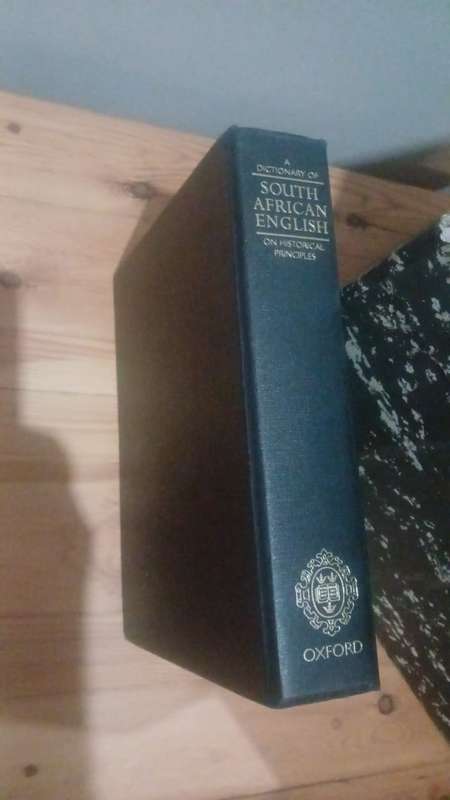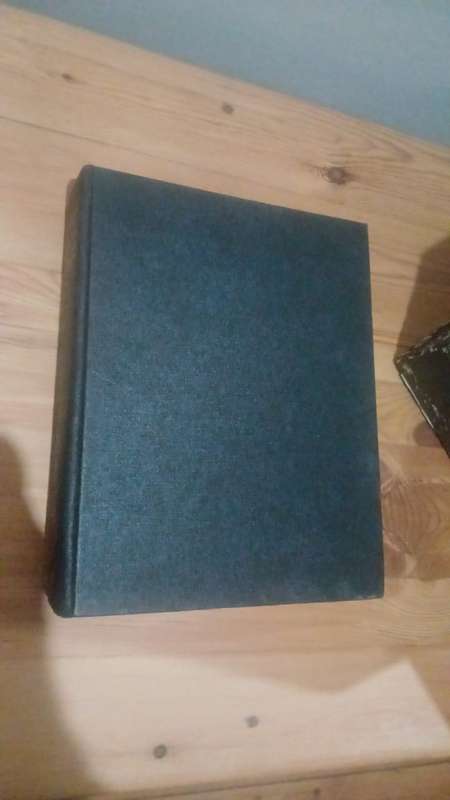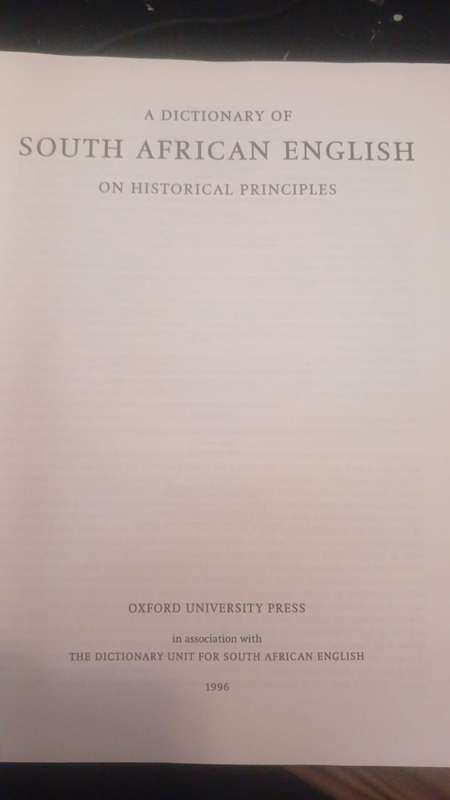A Dictionary of South African English on Historical Principles, Oxford University Press in association with The Dictionary Unit for South African English, 1996, hardcover, 824 pages, 22.5 cms x 28.3 cms x 5.9 cms, no dustjacket, overall condition: very good.
The Dictionary of South African English on Historical Principles (DSAE) provides a unique historical record of the development of English in a multilingual and multicultural society. The result of the fullest and most detailed research ever undertaken into the history of English in South Africa, it documents the English language as it has developed within all of the country's communities. Coverage extends from the sixteenth century right up to the present day, providing fascinating information about the country's history, as well as revealing the unique character of today's South Africa and its people. 47,000 quotations illustrate 5,000 entries covering all forms of the written word, historical and contemporary, as well as the spoken word of broadcasting and everyday conversation. The Dictionary records words derived from the many languages which have influenced English in South Africa, including Dutch/Afrikaans, and the Malayo-Indonesian, Indian, Khoisan, Nguni, and Sotho languages. A wide range of everyday words and phrases is listed, including brinjal (aubergine), bakkie (small truck), bond (mortgage), robot (traffic light), and on a tickey (accurately). Coverage also includes children's language (dabbies, ghoen, and schloep), soldiers' slang (roofie and vasbyt), the language of the townships (mellow yellow, spaza, and stokvel), local music vocabulary (kwela, mbaqanga, and sakkie-sakkie), and mining terms (cocopan, cheesa-stick, mine-dump, and blue-ground). The official language of apartheid is explored in detail with entries such as group areas, endorse out, and immorality.
The DSAE embraces linguistic diversity by including many Afrikaans lexemes and lexemes from African languages. In the
advertising pamphlet the dictionary proposes to, among other things, improve communication, give access to education, change perceptions of SAfE (South African English) locally and internationally, improve historical and political perspectives and create a new South African identity.
BOOKPLATE IS OF THE LIBRARY OF THE DAUGHTER OF A RENOWNED SOUTH AFRICAN POETESS.








